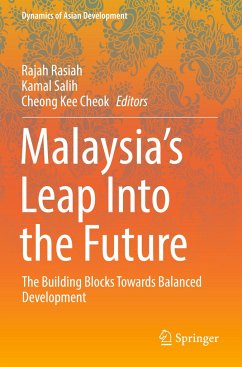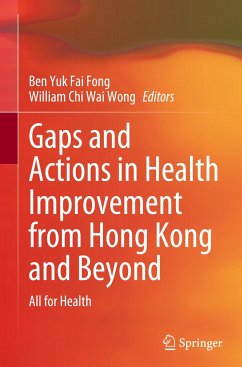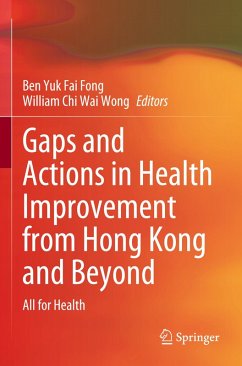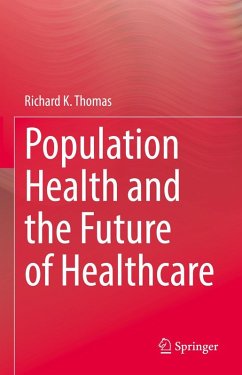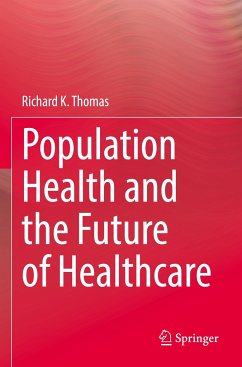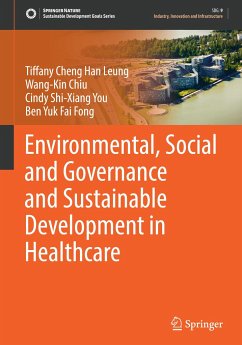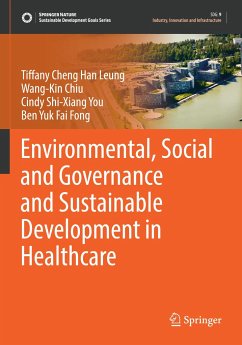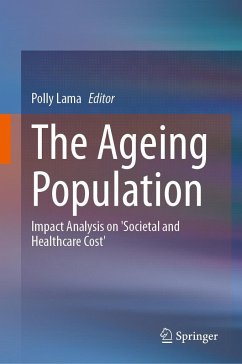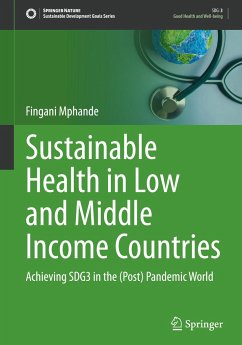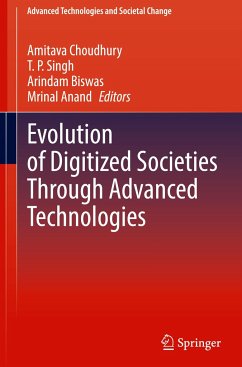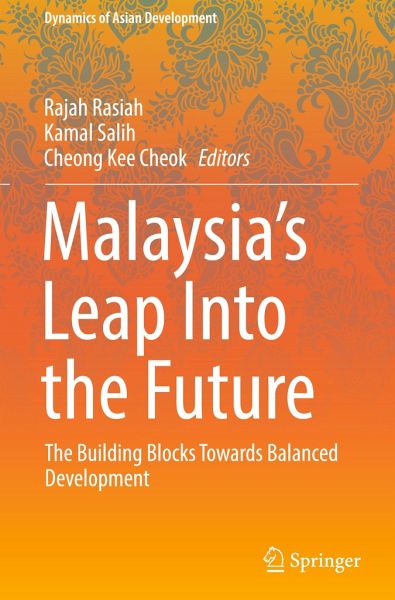
Malaysia's Leap Into the Future
The Building Blocks Towards Balanced Development
Herausgegeben: Rasiah, Rajah; Salih, Kamal; Kee Cheok, Cheong

PAYBACK Punkte
57 °P sammeln!
This book presents the future development of Malaysia. It puts together building blocks to achieve a better future. These blocks are poverty and income inequality, population, demography and urbanization, growth and technological progress, education, human capital and skills, finance, labor, the environment, and health care. It examines the reasons for the decline in the agricultural sector with an emphasis on food security. It discusses Malaysia's economic growth and structural change compared to some of the Northeast East Asian and Southeast Asian countries. It explains the projections of po...
This book presents the future development of Malaysia. It puts together building blocks to achieve a better future. These blocks are poverty and income inequality, population, demography and urbanization, growth and technological progress, education, human capital and skills, finance, labor, the environment, and health care. It examines the reasons for the decline in the agricultural sector with an emphasis on food security. It discusses Malaysia's economic growth and structural change compared to some of the Northeast East Asian and Southeast Asian countries. It explains the projections of population and demographic change and its bearing on government policies. It evaluates the country's education sector and discusses the strategies to improve its role in the country further. It argues for replacing ethnic-based approaches with a needs-based system for the future direction to build a plural Malaysia. This insightful book is of interest across several fields, includingdemography, economic development, and urbanization.



